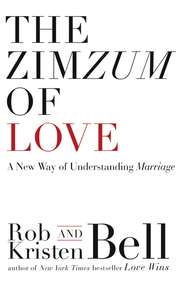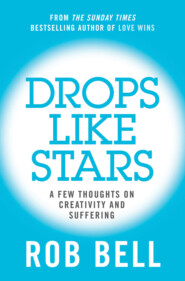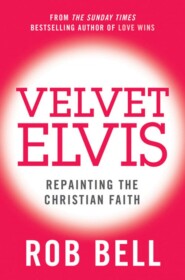По всем вопросам обращайтесь на: info@litportal.ru
(©) 2003-2024.
✖
How To Be Here
Автор
Год написания книги
2019
Настройки чтения
Размер шрифта
Высота строк
Поля
Who of us can make sense of our own existence?
Have you ever heard an answer to the question How did we get here? that even remotely satisfied your curiosity? (Is this why kids shudder when they think of their parents having sex? Because we get here through some very mysterious and unpredictable biological phenomena involving swimming and winning? … Our very origins are shrouded in strangeness. You and I are here, but we were almost not here.)
My friend Carlton (#litres_trial_promo) writes and produces television shows and sometimes I watch his shows and I’ll say to him, How did you come up with that? Where did that come from? We’ll be laughing and I’ll say, What is going on inside your head that you can make this stuff up?
Have you ever encountered something that another human being made and thought, How did she do that? Where did that come from?
When I was in high school my neighbor Tad, the drummer for the band Puddle Slug (they later changed their name to Rusty Kleenex to, you know, appeal to a wider audience) gave me two ceramic heads that he had made. One head is green and has a smiling face, and the other head is brown and has a frowning face. They are very odd sculptures. But at the time he gave them to me I was mesmerized.
You can do that?
You can take a pile of clay and break it in two and then mold it and work with it and make that?
As a seventeen-year-old I was flabbergasted with the ex nihilo-ness of what Tad had made.
He just sat down and came up with that?
(By the way, he gave them to me in 1988. I still have them; they’re on the wall next to the desk where I’m writing this book. Twenty-eight years later.)
The ex nihilo-ness of art and design and music and odd sculptures and bizarre television shows reminds us of the ex nihilo-ness of our lives—we come out of nothing. And we’re here. And we get to make something with what we’ve been given.
Which takes us back to this creation poem, which grounds all creativity in the questions that are asked of all of us:
What kind of world are we making?
Which always leads to the pressing personal question:
What kind of life am I creating?
Accountants and Moms (#ulink_35d2dd39-5ba0-5863-9eb0-d82be5fac983)
Now for some of us, the moment we hear the word create, our first thought is,
But you don’t understand, I’m not the creative type
or
That’s fine for some people, but I’m an accountant and it’s just not that exciting
or
What does any of this have to do with being a mom?
About ten years ago I was speaking at a conference and I decided to sit in the audience and listen to the speaker who spoke before me. He began his talk by saying that there are two types of people in the world: numbers people and art people. He explained that some people are born with creativity in their blood and so they do creative work and some people aren’t—they’re the numbers people—and that’s fine because they can do other things.
I sat there listening, thinking, That’s total rubbish.
Take accountants, for example.
Accountants work with numbers and columns and facts and figures and spreadsheets. Their job is to keep track of what’s being made and where it’s going and how much is available to make more. That structure is absolutely necessary for whatever is being done to move forward. It is a fundamentally creative act to make sure things have the shape and form and internal coherence they need.
Obviously, bureaucracies and institutions and governments and finance departments can be huge obstacles to doing compelling work, but ideally—in spirit—the person who gives things their much needed structure and order is playing a vital role in the ongoing creation of the world, helping things move forward. (Which is an excellent litmus test for whether the work you’re doing is work that the world needs: Does it move things forward? Because some work doesn’t. Some work takes things in the wrong direction. Some things people give their energies to prevent other people from thriving. Some tasks dehumanize and degrade the people involved. Perhaps you’re in one of those jobs, the kind that sucks the life out of your soul and you can’t see the good in it. Stop. Leave. Life is too short to help make a world you don’t want to live in.)
And then there are moms. I’ve met moms who say I’m just a mom …
Just a mom?
What!?
Could anything be more connected to the ongoing creation of the world than literally, physically bringing new human beings into existence and then nurturing that new life as it’s shaped and formed?
All work is creative work because all work is participating in the ongoing creation of the world.
Suffering (#ulink_0cc5b3a5-ab26-58f1-91bf-b8b13c753ebf)
But what about the things that happen to us that we never wanted to happen? What about tragedy and loss and heartbreak and illness and abuse—that list can be long.
What about all of the things that come our way that make us feel powerless and out of control, like our life is being created for us?
When I was growing up, my dad would come into my room every night before I went to bed and tell me that he loved me, and then he would stand in the doorway before he turned out the light and he would say, You’re my pride and joy. He coached my soccer and basketball teams, he took us on vacations, he made my sister and brother and me pancakes on Saturday mornings, he helped us with our homework. When I left home to go to college, he sent me handwritten letters every week, never failing to remind me that he was cheering me on.
I tell you about how present and involved my dad was in my life growing up because when he was eight, his uncle picked him up at his house to take him somewhere. His cousin was in the backseat of the car, and when my dad asked his cousin where they were going, his cousin said, To the funeral home—don’t you know? Your dad died.
That’s how he found out his dad had died: from his cousin in the backseat of a car on the way to the funeral home. His dad, whom he hadn’t known very well because his dad was gone during the war, had cancer and died at age thirty-four.
When my dad was fifteen, his mother became very sick, and he and his brother thought she was going to die. He once told me that while his mother was in the hospital, his brother clung to him through the night, repeating over and over with terror in his voice, Are we going to be all alone in the world?
She eventually recovered, but then a year later my dad’s brother, who was his best friend and constant companion, died unexpectedly in an accident.
How does a person bear that kind of pain?
How does a heart ever recover?
How does a young man make his way in the world when he’s experienced that much suffering?
Somewhere in the midst of all that pain and loss, my dad decided that someday he would have a family and he would be the father that he had always wished he had. And so that’s what he did.
How we respond to what happens to us—especially the painful, excruciating things that we never wanted and we have no control over—is a creative act.
Who starts cancer foundations? Usually people who have lost a loved one to cancer.
Who organizes recovery groups? Mostly people who have struggled with addiction.
Who stands up for the rights of the oppressed? Often people who have experienced oppression themselves.
We have power, more power than we realize, power to decide that we are going to make something good out of even this …
There’s a question that you can ask about the things that have come your way that you didn’t want. It’s a question rooted in a proper understanding of the world, a question we have to ask ourselves continually throughout our lives:











